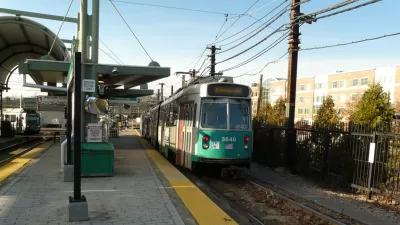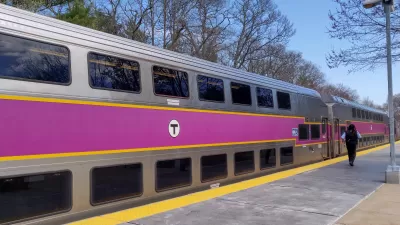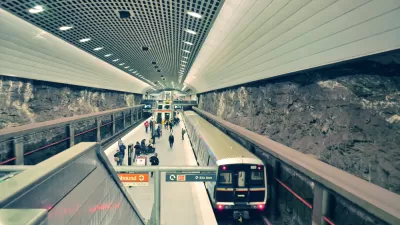The pro-transit mayor of Boston is proposing fare-free transit on some of the city's most heavily used bus routes.

Boston's new pro-transit mayor, Michelle Wu, is proposing expanding fare-free service on some of the city's most popular bus routes, reports Christian MilNeil.
The program would last for two years, and expand on an existing 4-month pilot that has suspended fare collections on the 28, the state’s busiest bus line, which runs on Warren Street and Blue Hill Avenue between the Ruggles Orange Line station and Mattapan Square.
With transit systems across the country facing the paradox of continued need and reduced ridership due to the COVID-19 pandemic, agencies are struggling to maintain service for essential workers while dealing with revenue reductions. Advocates support fare-free transit as away to encourage higher ridership and reduce operations costs.
However, some City Councilors are objecting to the change, calling for more public input on the measure and a closer examination of the fiscal impact of the reduction in fares. The Council may vote on the measure in December.
FULL STORY: In Her First Day in Office, Mayor Wu Proposes More Fare-Free Bus Routes for Boston

Alabama: Trump Terminates Settlements for Black Communities Harmed By Raw Sewage
Trump deemed the landmark civil rights agreement “illegal DEI and environmental justice policy.”

Planetizen Federal Action Tracker
A weekly monitor of how Trump’s orders and actions are impacting planners and planning in America.

The 120 Year Old Tiny Home Villages That Sheltered San Francisco’s Earthquake Refugees
More than a century ago, San Francisco mobilized to house thousands of residents displaced by the 1906 earthquake. Could their strategy offer a model for the present?

San Francisco Opens Park on Former Great Highway
The Sunset Dunes park’s grand opening attracted both fans and detractors.

Oregon Legislature to Consider Transit Funding Laws
One proposal would increase the state’s payroll tax by .08% to fund transit agencies and expand service.

Housing Vouchers as a Key Piece of Houston’s Housing Strategy
The Houston Housing Authority supports 19,000 households through the housing voucher program.
Urban Design for Planners 1: Software Tools
This six-course series explores essential urban design concepts using open source software and equips planners with the tools they need to participate fully in the urban design process.
Planning for Universal Design
Learn the tools for implementing Universal Design in planning regulations.
Clanton & Associates, Inc.
Jessamine County Fiscal Court
Institute for Housing and Urban Development Studies (IHS)
City of Grandview
Harvard GSD Executive Education
Toledo-Lucas County Plan Commissions
Salt Lake City
NYU Wagner Graduate School of Public Service





























